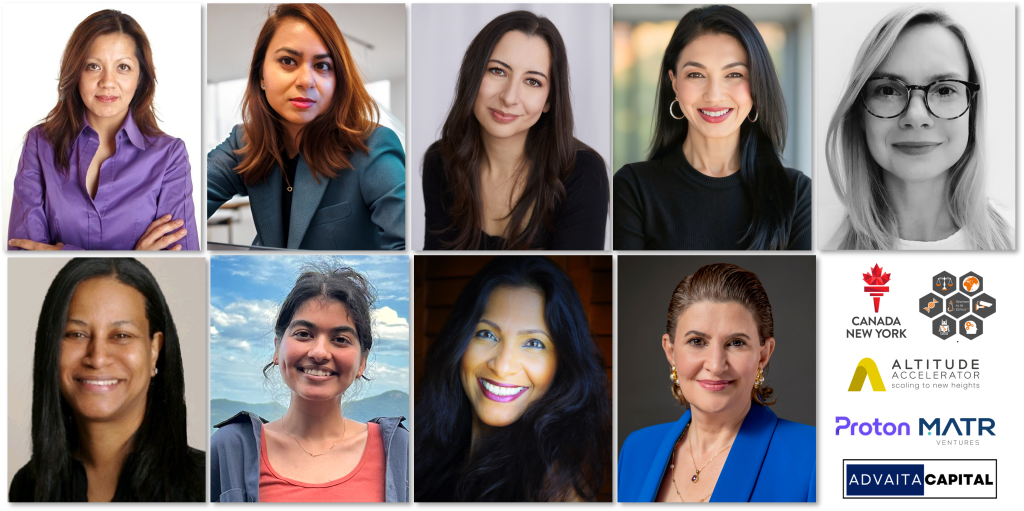Home » The First Responsible AI Ecosystem Summit Charts a Course for Inclusive Economic Growth
The First Responsible AI Ecosystem Summit Charts a Course for Inclusive Economic Growth

Artificial Intelligence (AI) has become a focal point for research and investment, especially in the realm of Generative AI, attracting global venture capital (VC) investments totaling $21.3 billion in 2023, a stark rise from $1 billion in 2018. However, this surge has also created a new landscape characterized by regulatory uncertainties and ethical risks surrounding the development of large language models (LLMs). Founders now face challenges related to market saturation and monetization, particularly as LLM control is largely in the hands of a few dominant organizations.
Moreover, the venture capital environment remains inequitable, especially for women and minorities. There is a marked underrepresentation of these groups in both VC and tech startups, with women-led tech startups receiving only a fraction of the total funding. This continuation of funding disparities threatens to further entrench inequity in the sector. A discussion led by industry leaders Giselle Melo, Managing Director of MATR Ventures, and Gayatri Sarkar, Owner of Advaita Capital, highlights these pressing issues.
Sarkar is at the helm of Advaita Capital, recognized as one of the few growth VC funds in the U.S. led by a woman of color. Advaita focuses on investments in generative AI, deep tech, and decarbonization, with check sizes ranging from $10 million to over $50 million, including notable investments in Stripe and Epic Games. Sarkar has been celebrated for her advocacy of gender equity in venture capital, evidenced by her successful campaigns that have mobilized over $100 billion for gender advocacy.
Melo, previously a partner at a Canadian advisory firm, brings extensive experience in investment banking and has a proven track record in tech leadership. As the Managing Partner of MATR Ventures, she emphasizes a performance-based approach, investing in late seed to Series A deep tech companies with inclusive teams. Despite initiatives aimed at supporting underrepresented founders, the disparity in funding remains significant, with women and minority teams often receiving less attention and funding compared to their male counterparts. A recent study indicated that VCs spent 66% more time on pitch decks from all-female teams but still allocated more time to all-male teams during fundraising discussions.
This trend underlines a systemic issue: while awareness and initiatives exist to support diversity, the funding gap persists, and in some cases, has widened. All-female teams, particularly those with minority members, have seen an increase in fundraising requests but continue to trail in overall funding secured, raising 43% less than all-male teams on average.
Sarkar notes that, despite running a minority-focused fund, she hasn’t seen deals from female founders, highlighting the ongoing difficulties women face in securing funding beyond Series A and B rounds. Many find themselves compelled to pursue IPOs due to challenges in raising subsequent Series C and D funds, pointing to a deeper gap within the capital structure heavily influenced by predominantly male-led firms.
Both leaders acknowledge the difficulties posed by closed networks and the decisions determining which companies are funded. Melo’s flexibility at the Series A level allows her to bring skilled networks into the due diligence process, which she believes adds significant value to her investment strategy aims to mitigate risks.
In summary, while efforts are being made to promote diversity in tech and investment ecosystems through organizations like MATR Ventures and Advaita Capital, significant hurdles remain in achieving equity and inclusiveness within venture capital, signaling an ongoing struggle that necessitates collective action and continued vigilance from all stakeholders.
Altitude Accelerator
https://altitudeaccelerator.ca/
Altitude Accelerator is a not-for-profit innovation hub and business incubator for Brampton, Mississauga, Caledon, and other communities in Southern Ontario. Altitude Accelerators’ focus is to be a dynamic catalyst for tech companies. We help our companies grow faster and stronger. Our strength is our proven ability to foster growth for companies in Advanced Manufacturing, Internet of Things, Hardware & Software, Cleantech and Life Sciences. Our team consists of more than 100 expert advisors, industry, academic, government partners. The team helps companies in Advanced Manufacturing, Internet of Things, Hardware & Software, Cleantech and Life Sciences to commercialize their products and get them to market faster.


